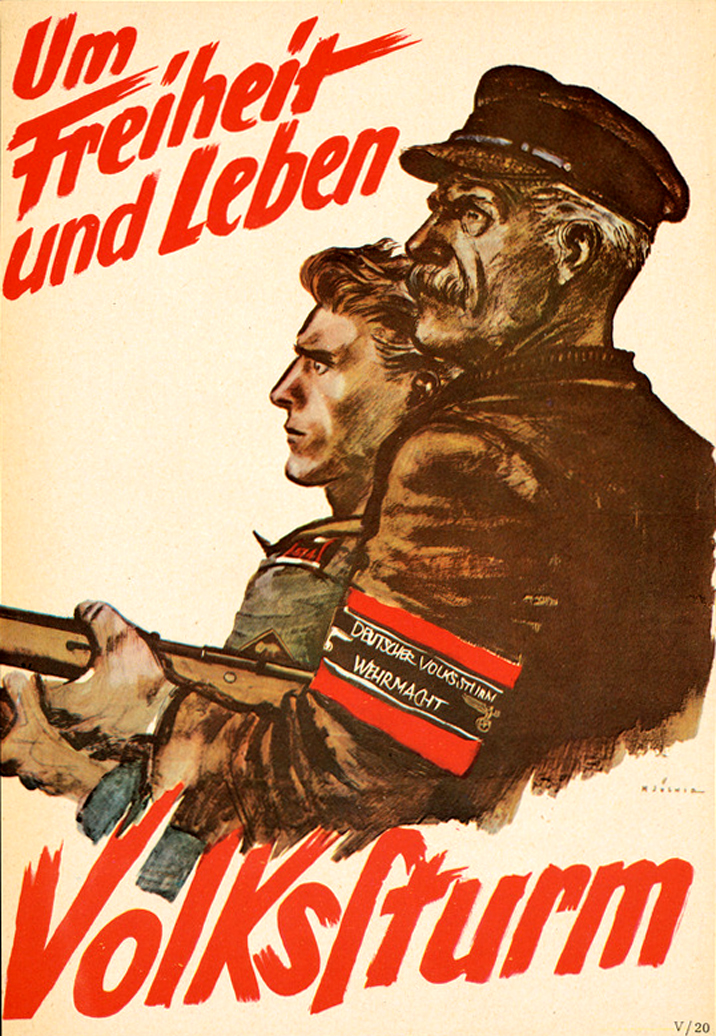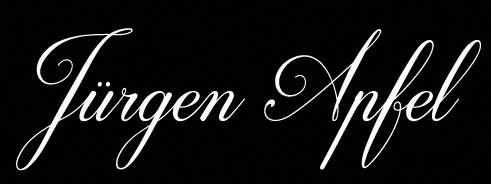
This is a 1988 interview, done in Trier, Germany, with Jürgen Apfel, Third Panzer Division and Volkssturm veteran
[Above: Brave men of the Volkssturm.]
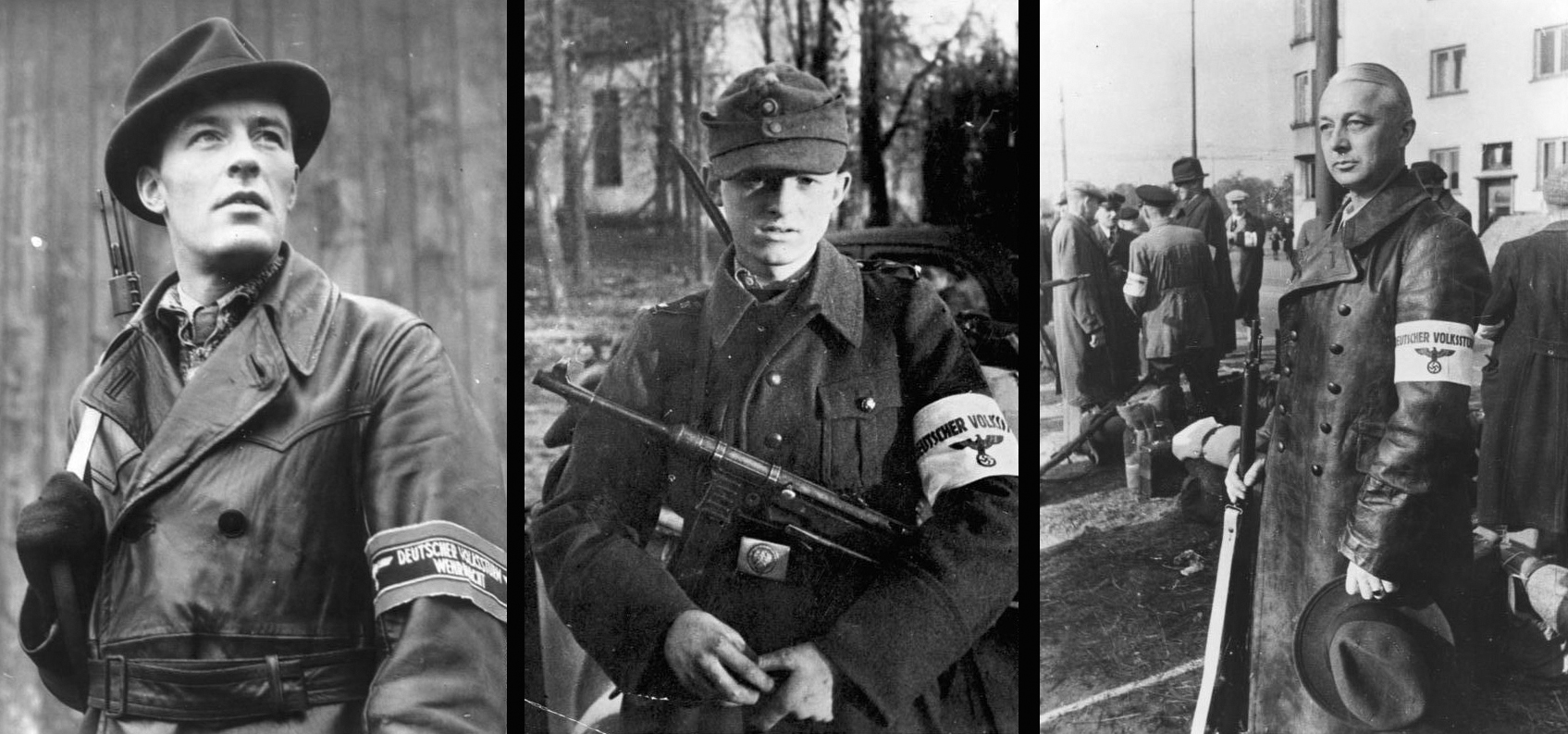

This is a 1988 interview, done in Trier, Germany, with Jürgen Apfel, Third Panzer Division and Volkssturm veteran
[Above: Brave men of the Volkssturm.]

Thanks for meeting with me; I am interested in learning more about your time in the Wehrmacht and particularly the Volkssturm. Can you start by telling how you came to the Wehrmacht?
Jürgen: Yes, I was born in Berlin-Lichterfelde and in 1935 it was announced Germany was rebuilding our armed forces to keep up with our neighbors. I had been in the Hitler Youth and was very good at scouting terrain. I applied to be a scout and was initially in a Calvary regiment here in Berlin. We were absorbed into the new third panzer division almost as soon as I joined.
I was trained in the new Aufklärungsabteilung [reconnaissance unit], on a Zündapp motorcycle. Some of our comrades volunteered to help Spain fight the communists in their civil war. I was trained to find enemy positions and tell what their strength was. I received training on the K98, MG34, and P08, which I won the marksmanship lanyard 4th class in 1938. I especially liked shooting the 34.
You were in the Polish campaign, what was that like for you?
Jürgen: Yes, my division was moved to the border as tensions were escalating with Poland. I will tell you why. The Allies broke up Germany after the first war, and Poland was made a separate nation, getting a large area of Germany and Russia. The Germans used to be the rulers over the Poles and now the Poles paid the Germans back. The new German minority was mistreated and forced to pay into this new state at a rate that was high and unfair.
When Germans complained they were labeled as traitors and enemies, some paying with their lives for standing up to bullies who wanted them to be loyal to the new nation, and not the old. This was not reasonable as they were not given a choice who to have loyalty to. This went on from 1920 to 1939. Also in 1919, Poland launched attacks for additional German land that was now undefended, to try to take it away as well. The Freikorps stopped these, with the help of a Bolshevik invasion of Poland, which took their focus off us.
There were many instances not spoken of today that provoked Germany into attacking, artillery being fired into the Reich, a plane attacked by flak, seizers on the Baltic sea, border raids which killed German citizens, and attacks on Germans in Poland. Many fled in 1938/39 to find shelter and spoke of the cruelty they endured. We were mobilized in August and put on alert fearing war would break out. Flyers were dropped on some German areas saying the new Polish capital will be Berlin. On Sept 1, 1939, my unit was one of the first to cross the border. We met Polish guards who were quickly disarmed and sent to the rear.
Our unit advanced quickly and overhead we could see our bombers, artillery was battering Polish positions. As our unit moved further into Poland, we came under intense tank and artillery fire. We were forced to dismount and defend ourselves. Our calls for reinforcements were sent back by another rider. We faced a tank regiment with infantry, they sprayed our defense with cannon and mg fire. We only had the MG34 on our bikes and K98 rifles.
The Poles launched an attack against us, I fired the 34 into the advancing soldiers and they fell or ran away. I noticed one was throwing grenades at us and a burst stopped his efforts. We could see more men arriving, and they immediately charged into us meeting the same fate, but our ammo was now running low.
No sooner did we defeat this attack than the tanks moved forward, a shell landed right by us. My comrade was wounded and I also, in the side and leg. I was bleeding heavily, and the enemy was almost on us, when suddenly stukas roared overhead. I can see that wonderful black cross on the wings as they completed their dives. The panzers from our regiment arrived at the same time and a fierce tank duel started as I passed out.
I was recovered by our medics and put on a train to Berlin for hospital. My wound was severe and qualified me for the wounded badge in silver. The army released me as unfit for duty and enrolled me in a course to train for civilian life and a career. I wanted to sell weapons so I got help opening a store specializing in gun repair and sales. I did this all the way until late 1944, specializing in rare ammunition and hunting supplies.
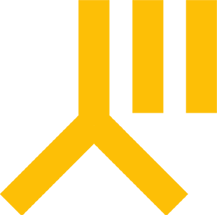
[Above: Insignia of the Third Panzer Division]
I was always told Germany did not allow gun ownership. People in the US always claim Hitler took away guns from the people.
Jürgen: That is not the truth, guns were owned by many, especially farmers and hunters. There was no law that said guns were illegal. Now where people may get the idea from is that we had a few rules for owning guns. You had to be a German citizen; you could not be mentally defective, and the police could not know you, which was all. The Weimar era had very tight gun laws, taking away guns from most all citizens. When Hitler came to power these laws were done away with. Anyone in the Reich could own a gun if they wanted to and indeed it was encouraged as a way to protect our land.
The National Socialist government under Hitler was very pro-gun; anyone could go into many a store and buy a pistol, rifle or shotgun. Many gun collectors sprung up after 1934, there were many clubs where you could meet others and buy, sale, and trade what you had. Even military souvenirs from past wars could be sold. Berlin had a market where many set up stands to do this. Hermann Goring would come to these fairs, buy ammunition, and look for collectibles.
You ended up serving in the Volkssturm, what was that like?
Jürgen: In 1944, Germany was in a bad way, the east, west, and south fronts had collapsed and the enemy was breaching our borders. As Germans, we were tired of the war, tired of the bombings, and tired of the sacrifices demanded, but we knew we had to keep going. Because most understood what capitulation meant, it would be 1918 times ten only now with Bolsheviks pillaging our land. A book was spoken about called the 'Morgenthau Plan', written by a Jew who wanted all Germans to be wiped out.
The bombing raids and the knowledge of what waited for us if we lost made us fight on as fanatics. Many knew that if we lost, Germany would be lost forever. Our culture would be altered, we be in servitude, and we would have no choice as to our destiny. The VS was formed as a last bastion against the enemy. It was believed if we could mobilize enough Hitler youth and older men that it may bleed the Allies dry and give us more time for our wonder weapons to come out.
My wife left Berlin to live with her parents in the south to stay safe. Calls went out for all ex-servicemen and any able bodied man to take up arms to defend our homes. I walked with a bad limp, but was eager to get at the enemy, since I had previous experience I was given a nco rank and commanded a platoon of old men. Our area was the defense of the Oder, and then to retreat into the suburbs of Berlin to fight house to house.
I still made a living with my weapons repair and sales, so I started training in the evening, and on the weekends. We learned to use the new panzerfaust, and mines. Even women were trained to use this weapon. We trained very urgently, everyone was attentive and focused, this was life or death. We had no uniforms, only our civilian clothes, but we did have to wear an armband to identify us as combatants along with an ID book, otherwise the Allies would have shot us as partisans.
We were done training and ready for action by the end of March 1945, and we marched to Rudersdorf to confront the Soviet offensive aimed at Berlin. My platoon deployed next to the road by a pond, and dug trenches. We heard artillery fire and the Soviet planes attacked regularly, strafing civilians as they trekked back towards Berlin and the west, I saw this happen a few times with no military presence to justify these attacks. More army units were joining us from the south and moved in front of us.
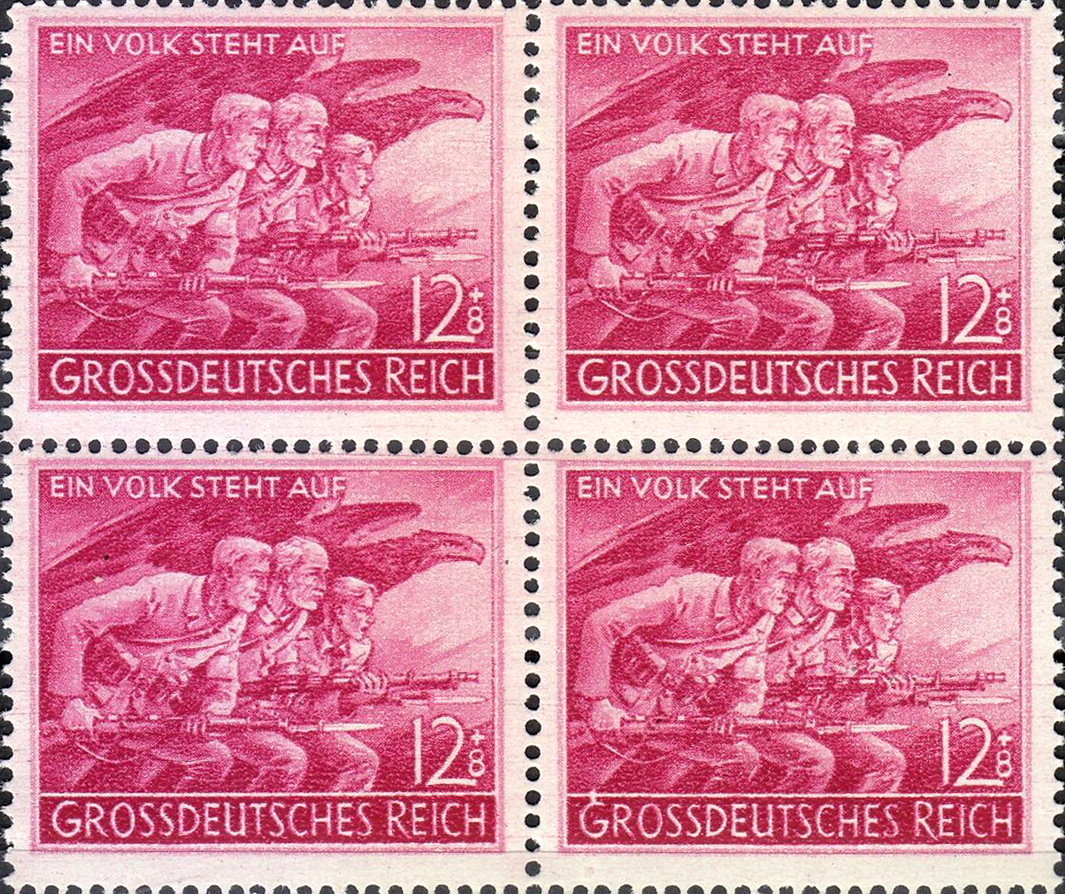
[Above: Postage stamps released in the closing days of the war honoring the Volkssturm. It says: 'Ein Volk Steht Auf' (A People Rises Up).]
Jürgen: Yes, it did not take long for the Soviets to attack. It was a cold damp day, and we heard massed engines in the distance. Their artillery was landing all over the area; they must have had thousands of guns. Through the smoke and mist, we could make out a column of green vehicles, led by an armored car. The unit in front of us knocked it out with a pak gun; it blew up in a fireball. I could see Infantry coming out of distant woods, but the frontline army unit cut them to pieces with the new mg42.
More artillery and mortars hit us, causing some losses, and they came again with tanks. Again, the pak knocked out the lead tank, and the infantry were repulsed. It looked easy to us so far. More tanks came and pushed the others off the road, this time they knew where the pak was, and a direct hit killed the crew. We now sprung up; I took a panzerfaust and aimed at a T34 which was now close. I aimed at the turret ring, and fired. The tank exploded and came to a halt. No sooner did I smile than shells came raining in from other tanks behind it forcing us down and to scatter.
I remember a stuka came in and knocked out the next lead tank and more with a special gun under the wings, a pak gun. The crews bailed out and since we were short on ammo, we let them go. A SS officer came up to us and said well done, then ordered us to retreat, as they were moving in. We fell back towards the outskirts of Berlin, and rested for a bit. I was surprised at how many people were still in the city. Orders were given for all non-essential civilians to be removed. Many refused, as they wanted to try to save their possessions.
We went back into action again soon when another tank column was spotted and had to be dealt with. Again, panzerfausts ruled and knocked out tank after tank, but they kept coming. A man who was a grandfather of 17 grandchildren made a stand where he rose up to fire at a tank that had moved off the road, he fired, knocking it out, but was then cut down by infantry. We had to retreat again, and had the chance to board a truck, but no sooner were we on than a plane attacked, and we had to jump off, it was easier said than done for me. A bullet caught me in the arm, and I was rushed away to ta field hospital, then sent to a Berlin hospital that had no roof, and makeshift treatment areas.
There were many foreign people in this hospital, from all over the world. I was seen by a French doctor, and helped by a Spanish nurse. Many SS men were in this hospital too speaking every language you could imagine. Even Russian soldiers were being treated in this place, and this saved myself and others from the Soviets, who fueled by propaganda, were behaving as animals.
What happened at the end of the war?
Jürgen: I stayed in hospital for most of April, my wound turned septic as medicine was in very short supply. I lay in bed as the battle for Berlin went on all around us. I think it was close to the Führer's birthday that the hospital was entered by Soviet troops, they shot a wounded SS soldier, but one of the wounded Soviets called out to them and they stopped. They must have told them we treated them well, as they then brought in medics who looked after most everyone.
They even gave me the medicine I needed to treat the infection. This did not last long however as the political soldiers came in and removed all Germans to collection camps. As they marched us through the streets I was stunned to see the destruction the battle caused. They held me until August, and then released all older men who had served in the VS. They never knew I had prior service in the heeer.
[Above: Volkssturm recruiting poster. It says: 'Um Freiheit und Leben' (For Freedom and Life).]
[Above: Volkssturm armband.]
